Role of Public Expenditure:
Prof. Musgrave’s views on Public Expenditure.
The traditional objectives of public expenditure in developed economies are said to be-
- Increase in income and employment.
- Better distribution of income.
- Proper allocation of resources into socially desirable channels.
Prof. Musgrave pointed out that the role of public expenditure in matured economies is increasing-
- For maximizing economic welfare through the allocation of resources.
- For achieving full employment and economic stability.
- For making an equitable distribution of income.
- For accelerating economic growth.
Thus, he assigned four functions to the public expenditure in matured economies, namely-
- Activities to secure a re-allocation of resources.
- Redistributive activities.
- Stabilizing activities.
- Commercial activities.
A modern democratic government has to incur public expenditure on these activities because of-
- The imperfections in the market economies or the presence of monopolistic tendencies.
- Full employment or economic stability may not automatically be achieved.
- There may not be equitable distribution of income.
- The operation of certain enterprises by the private sector may not be socially desirable.
Professor Musgrave pointed out the following reasons for the increasing trend of public expenditure in developed economies:
(1) Activities to Secure a Re-allocation of Resources-
- There are imperfections in the market economies and the government has to intervene to eliminate the imperfections of such economies by means of the spread of knowledge and employment exchanges, etc. The government has to check monopoly practices such as collusion and price discrimination, etc. The monopolist through these practices restricts the output below the optimum level and creates excess capacities. The government has to restore the output at competitive levels by means of regulation of price output, antitrust legislation, or even by means of outright nationalization. Such intervention would ensure an optimum allocation of economic resources. Obviously, the government has to incur public expenditure to achieve these objectives.
- Certain industries operate under decreasing cost conditions. If they are left to be operated on a profit basis, the output produced by them would be small, for such industries are monopolistic in nature. The government has to encourage an expansion of the output of such industries by various means such as subsidies to the producers with a view to making it available in large amounts to the masses. So that, the public utility services like railways, electricity, etc. may be provided at very low prices.
- The production and use of certain goods like liquor, freely create additional costs to society in the form of traffic congestion, accidents, more crimes, etc. Such costs do not enter into the cost calculation of the private producers when they try to maximize their profits. Thus, what is profitable to the private firm may not be profitable from the point of view of society. The government has to take measures to restrict investment in such industries by regulating output or by imposing high taxes on the production and sale of such goods. Thus, the volume of public expenditure is increased.
- Certain activities like the development of railways in the new territory may lead to gains in economic development that are much greater than the profits of railways. Since the market mechanism permits to charge a price only to a part of the total gain, hence, the development may be unprofitable from the private point of view, but profitable from the public point of view. Such activities must, therefore, be undertaken by the State for State would create external economies.
- Certain services like education can be provided by private sectors, but they would not be provided in optimum amounts, because of the higher cost than price. The government has to take measures to increase the supply of such services either directly by setting up its own institutions or indirectly by means of grants to private institutions, for such services provide direct benefits to individual users as well as general benefits to society. Examples are free education, free hospitals, free recreational facilities, etc.
- Certain goods or services like defense must be provided by the government because they cannot be provided by private producers. This is so because these services or benefits being social in nature, cannot be split up into small units for sale to individuals. These are enjoyed in equal amounts by all. No one can be excluded from these benefits if anyone refuses to pay for them. Markets cannot satisfy such collective wants. Hence, the government must provide them through the budget or through taxes and expenditures. Examples are defense, police protection, flood control, sanitary campaign, etc. These are called pure collective goods because they cannot be withheld if one does not pay for them.
(2) Redistributive Activities- Inequalities in the distribution of income and wealth are an important feature of a modern economy. Such inequalities are sought to be reduced by means of taxes and transfer of expenditures as also by means of legislation, so as to raise the economic welfare of the masses. Progressive taxes were imposed on income and wealth so as to reduce income and wealth in the hands of the rich. The transfer expenditure is incurred or social security benefits are provided to the low-income groups so that their real income is raised. This is done by providing certain goods or resources below the market prices to increase the welfare of low-income groups. Examples public housing, public hospitals, government medical services, public assistance to the old, etc. These objectives can also be achieved by means of public works, minimum wage legislation, price, support, tariffs, etc. Such activities provide the minimum standard of living desirable, thereby reducing the adverse effects of income inequalities.
(3) Stabilizing Activities- As the modern government is supposed to avoid business fluctuations and maintain economic stability, i.e., maintain a high level of employment and price stability. During the period of depression, government expenditure must be increased. This can be done by reducing the taxes and maintaining the existing expenditure, (covering the deficit in the budget by borrowing from banks) or by increasing its expenditure while keeping the taxation level constant. It means that government should resort to deficit financing during the period of depression, and increase aggregate expenditure. The device is called compensatory financing. The device of compensatory financing is adopted to increase the level of effective demand to fight depression and unemployment.
On the contrary, if there exist inflationary conditions in the economy due to an excess of private expenditure after the attainment of full employment, the government must reduce it while keeping the taxation level constant; or by keeping its expenditure constant while raising the level of taxation in the economy. In either case, there would be a surplus in the budget. This would reduce the aggregate expenditure and check the price rise. However, the rates of taxes to check inflation should not be so high which may cause adverse effects on incentives.
When there is full employment and stability, government expenditure should be maintained so as to prevent unemployment and inflation. This would require a proportionate increase in the government expenditure with the increase in the rate of economic growth so that, there is economic growth with stability.
There are also alternative or complementary tools such as monetary tools, borrowing, and price, and wage control- which may also be adopted along with the fiscal tools to control price fluctuations.
(4) Commercial Activities- Certain services like transport services which are natural monopolies. They are most efficiently provided by the government than by a private enterprise. The cost of rendering such services should be covered by taxes like vehicle taxes. This would reduce some real costs to society such as the inconvenience caused to the public when these services are supplied by private monopolies. Also water, gas, electricity, etc. may be more efficiently provided by the government than by privately regulated monopolies. They may take initiative in such fields. Besides, the government may also invest in certain projects which are highly beneficial from the social point of view but because of the poor returns on such projects, the private enterprise may not come forward to invest in such projects. It may also provide loans to farmers and small-scale producers at a low rate of interest.
Public Expenditure and Economic Life:
Public expenditure can influence the economic life of a country in various ways, i.e., it can be restored to improve the level of production and distribution and to maintain economic stability. It can increase the level of production by granting loans and bounties for the development of agriculture and industries. Again, it can make provisions for technical know-how, means of transport and communication, power, etc., to encourage production. It can start the manufacture of essential commodities and capital goods and may compete with private enterprises. Similarly, public expenditure can change the patterns of distribution by increasing the salaries of public employees, making provision for social security and medical facilities, etc., on one hand, and by nationalizing industries and acquiring land on the other hand, Public expenditure is also helpful in maintaining economic stability, by increasing it during depression, and by reducing it during inflation, and hence, can prevent fluctuations in the economic life of a country. It should be noted here that public expenditure can be regarded as one of the tools of government economic policy to improve production, and distribution and to maintain economic stability. Here, it should not be supposed for granted that only this aspect of economic policy may bring desired results. There are other measures, such as monetary policy, economic controls, taxation, etc., which should also operate in these directions to achieve the aim laid down in the economic policy. This will make the economic policy more effective.

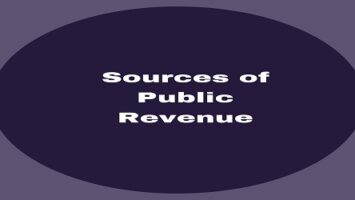

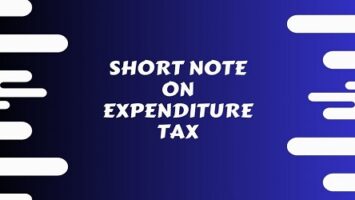
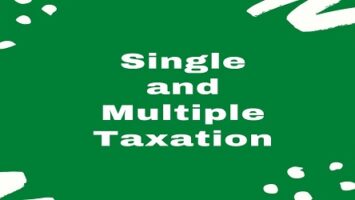
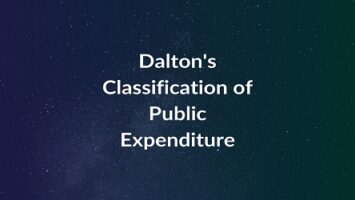
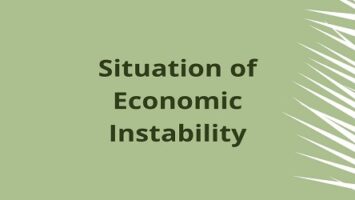
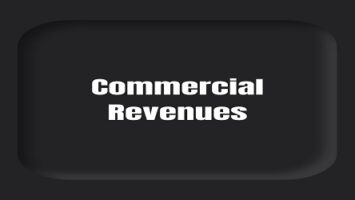

Comments (No)